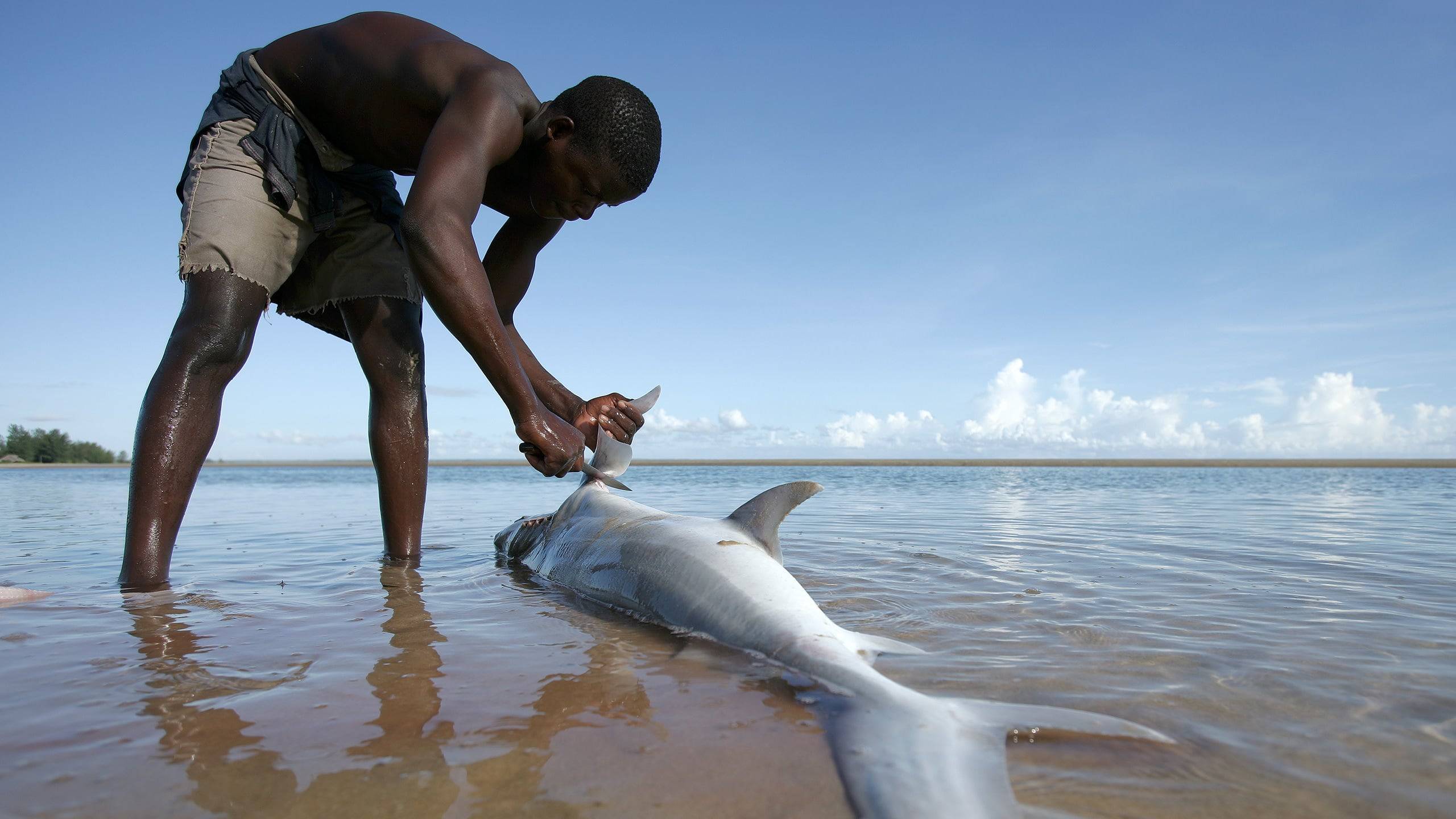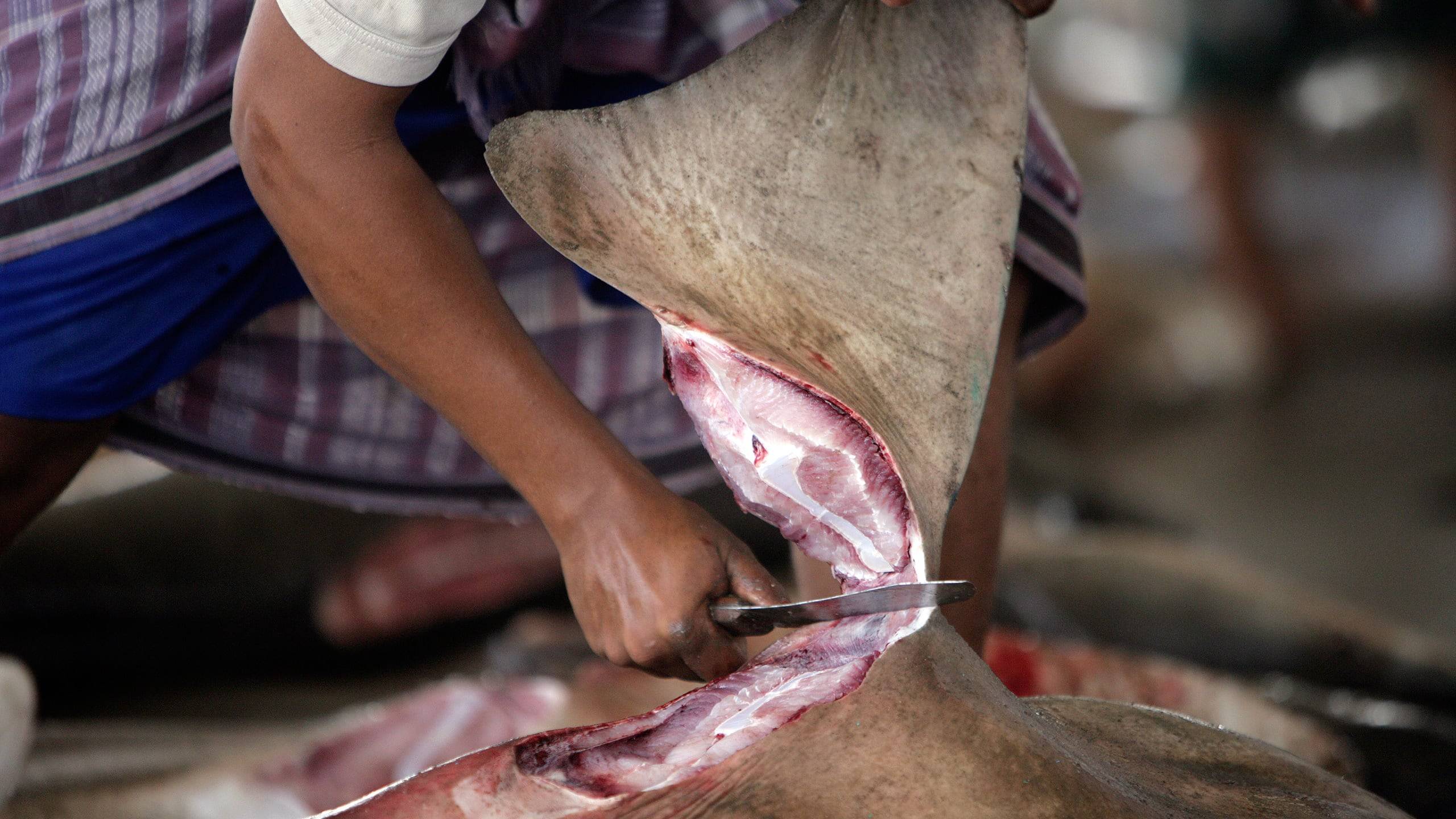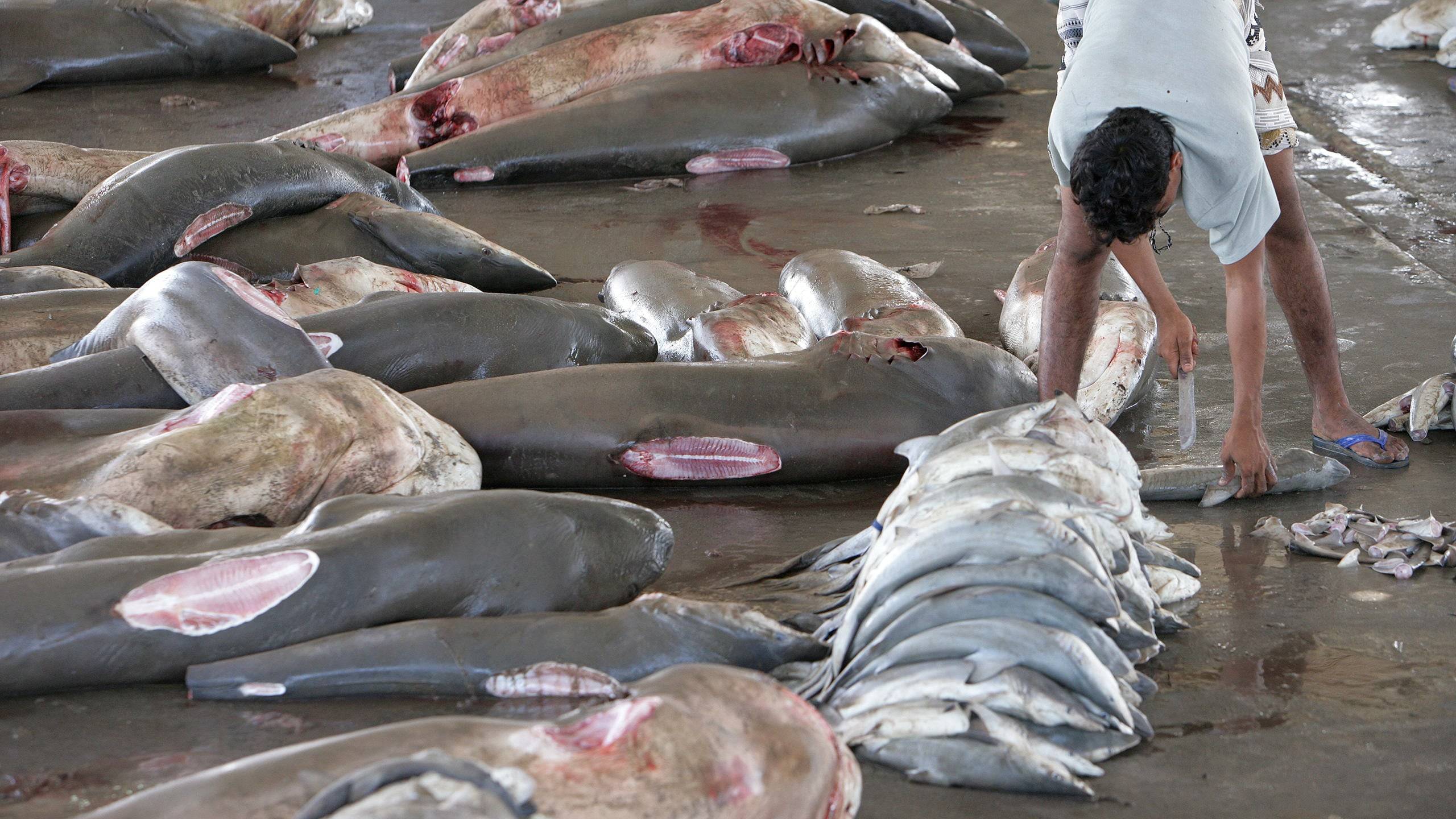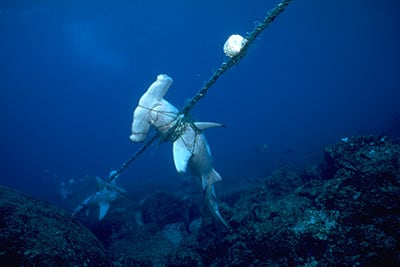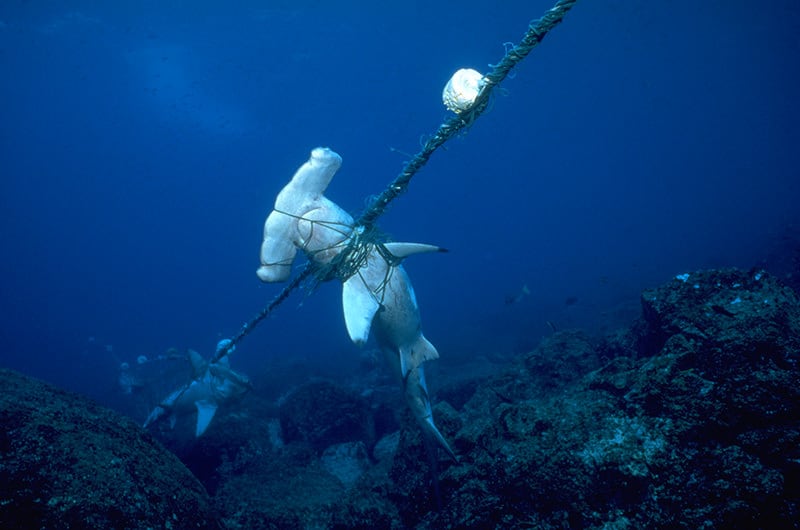Bycatch and Ghost Nets
International fishing fleets primarily target bony fish, especially important being the expensive tuna and other big fish. But where big fish are caught, sharks are also caught. Many sharks die in the nets and longlines of international fishing fleets and are disposed of as bycatch, mostly dead.
"Ghost nets" and generally "ghost gear" also pose great danger. These are nets and lines that have torn loose and drift freely in the sea.
Bycatch
Bycatch is another reason for the global depletion of shark stocks, especially the larger pelagic sharks like makos and blue sharks. But dolphins, sea turtles and large seabirds such as albatrosses are also affected. They eat the bait intended for fish together with the hooks and often die before they can be released. The same problem exists with trawl nets which are often miles long. Actually, bycatch is not what the fishing industry is after, because it means extra work and, in the case of endangered species, trouble. But fishing methods using nets and longlines are too unspecific and in commercial fishing the fishing gear usually drifts in the sea for hours. So bycatch can often only be taken dead on board and disposed of in the sea.
Unfortunately, eco-labels such as MSC only demand very general measures against bycatch. There are no specific requirements to reduce shark bycatch.
Ghost gear
So-called ghost nets or ghost gear refers to lost fishing material and is the result of intensive international fishing. It is more efficient to use new material than to recover lost material and make it ready for use. For example, the FAO estimates that 640,000 tons of these ghost nets drift in the oceans, or 10% of all plastic waste in the sea. Modern nets and lines are made of nylon or other plastic materials and survive for centuries in the sea.
Thousands of kilometers of nets and lines in the oceans are not only death traps for sharks, but also for whales, dolphins, turtles, seabirds and other marine life.




